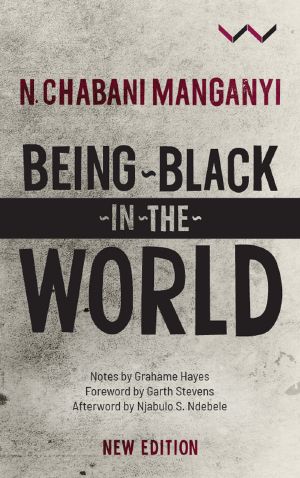Being Black in the World

- Authors
- Manganyi, N.C.
- Publisher
- Wits University Press
- ISBN
- 9781776143689
- Date
- 2019-09-01T00:00:00+00:00
- Size
- 0.69 MB
- Lang
- en
N. Chabani Manganyi is one of South Africa's most eminent intellectuals and an astute social and political observer of his time. He has had a distinguished career in psychology, education and in government, and has written widely on subjects relating to ethno-psychiatry, autobiography, black artists and race. Being-Black-In-The-World , one of his first publications, was written in 1973 at a time of global socio-political change and renewed resistance to the brutality of apartheid rule, including the Durban strikes of 1973 and the emergence of Black Consciousness. Publication of the book was delayed until the young Manganyi had left the country (to study at Yale University) as his publishers feared that the apartheid censorship board and security forces would prohibit him from leaving the country, and perhaps even incarcerate him, for being a 'radical revolutionary'. Like Fanon in Black Skins, White Masks , Manganyi expressed the vileness of the racist order and its effect on the human condition. While the essays in this book are clearly situated in the material and social conditions of that time, they also have a timelessness that speaks to our contemporary concerns regarding black subjectivity, affectivity and corporeality; the persistence of a racial (and racist) order; and the possibilities of a renewed de-colonial project. Each of these short essays can be read as self-contained reflections on what it meant to be black during the apartheid years. At the same time Manganyi weaves a tight and interconnected argument that gives the book a quiet cohesiveness. He is a master of understatement, and yet this does not stop him from making incisive political criticisms of black subjugation under apartheid. The essays will reward close study for anyone trying to make sense of black subjectivity and the persistence of white insensitivity to black suffering. Ahead of its time, the ideas in this book are an exemplary demonstration of what a thoroughgoing and rigorous de-colonial critique should entail.